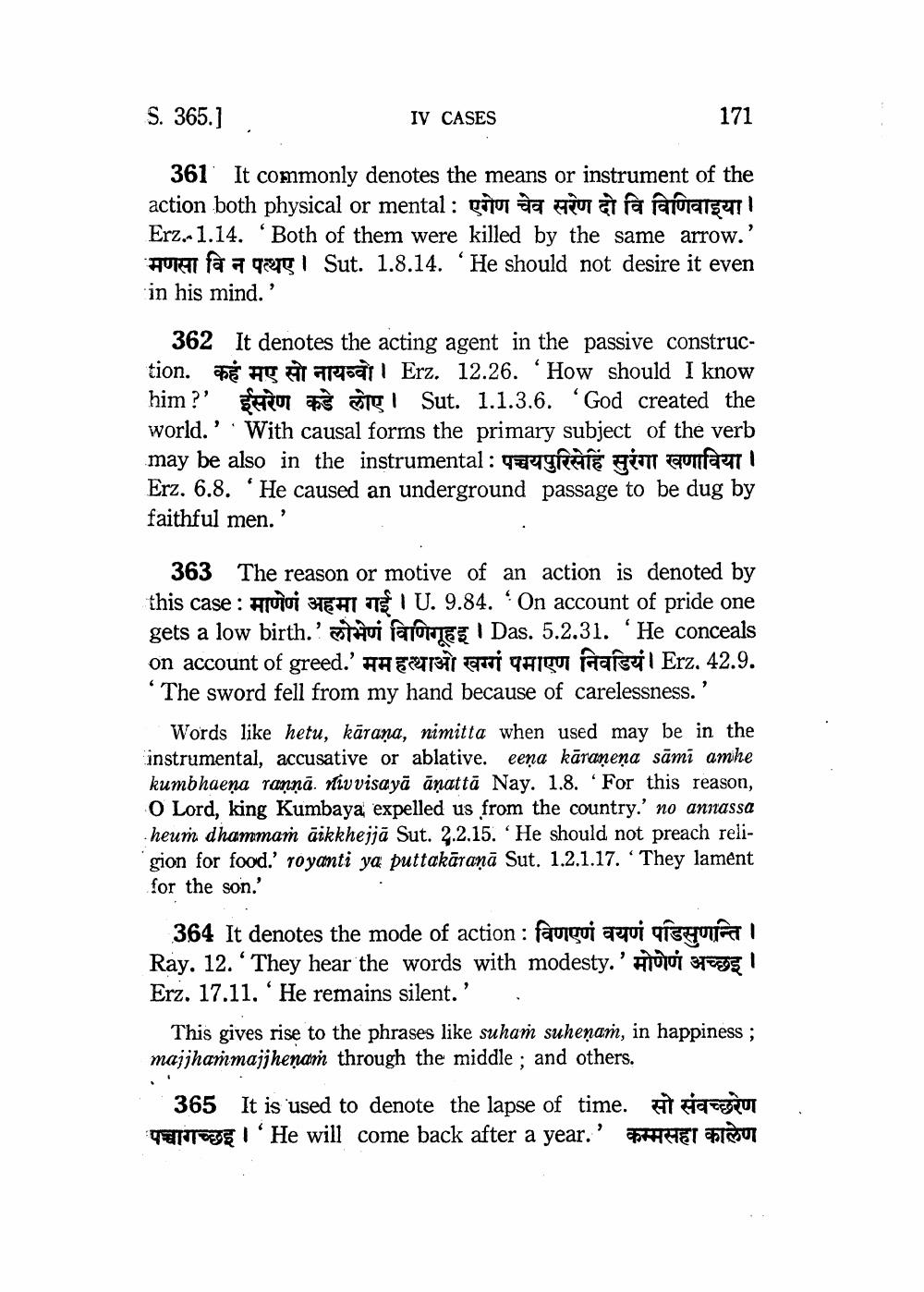________________
S. 365.]
361 It commonly denotes the means or instrument of the action both physical or mental : एगेण चैव सरेण दो वि विणिवाइया । Erz. 1.14. Both of them were killed by the same arrow. मसावि न पत्थए । Sut. 1.8.14. He should not desire it even in his mind. '
6
IV CASES
"
362 It denotes the acting agent in the passive construction. Erz. 12.26. How should I know him?' Sut. 1.1.3.6. 'God created the world.' With causal forms the primary subject of the verb may be also in the instrumental : पच्चयपुरिसेहिं सुरंगा खणाविया । Erz. 6.8. He caused an underground passage to be dug by faithful men.
•
9
171
4
363 The reason or motive of an action is denoted by this case: U. 9.84. On account of pride one gets a low birth.'i fa on account of greed.' मम हत्थाओ खग्गं पमाएण निवडियं । Erz. 42.9.
Das. 5.2.31. He conceals
"
The sword fell from my hand because of carelessness.
"
Words like hetu, kārana, nimitta when used may be in the instrumental, accusative or ablative. eena kāranena sāmi amhe kumbhaena rannā. nivvisayā āṇattā Nay. 1.8. For this reason, O Lord, king Kumbaya expelled us from the country.' no annassa heum dhammam āikkhejjā Sut. 2.2.15. He should not preach religion for food.' royanti ya puttakarana Sut. 1.2.1.17. They lament for the son.'
"
364 It denotes the mode of action: fauoi ayvi qîeyufa | Ray. 12. They hear the words with modesty.' Erz. 17.11. He remains silent.
This gives rise to the phrases like suham suheņam, in happiness; majjhammajjhenam through the middle; and others.
365 It is used to denote the lapse of time. पच्चागच्छइ । ' He will come back after a year. ' कम्मसहा कालेण




